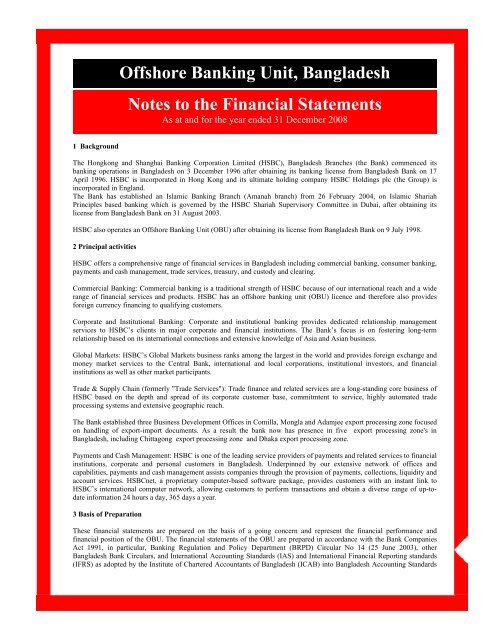Offshore Company Formation: Building Your Organization Beyond Boundaries
Offshore Company Formation: Building Your Organization Beyond Boundaries
Blog Article
Understanding the Lawful Effects of Offshore Company Development

Lawful Framework for Offshore Firms
When developing an offshore company, comprehending the lawful structure governing its formation and procedure is critical for conformity and risk monitoring. Offshore companies run under specific regulations and regulations that vary from those of onshore entities. The lawful framework for offshore companies generally includes provisions for business registration, investor needs, director duties, and tax commitments.
Business registration entails submitting the required documentation to the ideal regulative authorities in the picked jurisdiction. This process often requires detailed details concerning the company's framework, investors, and desired activities. Furthermore, overseas companies should comply with details investor needs, such as keeping a register of investors and keeping this information approximately day.
Supervisors of overseas firms have fiduciary duties to act in the most effective rate of interests of the company and its investors. They are responsible for looking after the business's procedures, making sure compliance with all appropriate legislations, and taking care of risks successfully. Moreover, recognizing the tax commitments of an offshore firm is crucial to stay clear of any prospective legal concerns. By sticking to the lawful structure governing overseas firms, companies can run with confidence while decreasing legal risks.


Tax Implications and Rules
Understanding the tax obligation implications and regulations is extremely important when considering the facility and operation of an offshore company. Offshore business are typically subject to positive tax routines, using minimized or absolutely no tax rates on foreign-earned income.
Tax obligation laws for overseas business vary significantly across jurisdictions, and it is important to seek professional recommendations to understand the specific needs and obligations. Failure to abide by tax obligation legislations can lead to extreme consequences, including significant penalties, reputational damages, and also legal activity. Furthermore, overseas territories may have reporting obligations to reveal financial info to appropriate authorities. Thorough understanding of tax obligation legislations and guidelines, as well as appropriate tax obligation planning, are crucial to ensure the successful and compliant procedure of an offshore company.
Compliance Demands and Reporting
Guaranteeing compliance with regulatory needs and preserving exact reporting are additional resources vital aspects of managing an offshore company effectively and transparently. Offshore companies need to stick to the legislations and guidelines of both the jurisdiction in which they are integrated and any type of other appropriate territories where they conduct organization.
In addition to regulatory compliance, overseas firms are usually based on reporting needs to make sure transparency and protect against prohibited activities such as cash laundering or tax obligation evasion. Reporting obligations may entail divulging info regarding the company's possession structure, economic activities, and beneficiaries. This info may need to be shared with regulatory bodies, tax authorities, or other governmental agencies, depending on the territory.
Maintaining complete and precise documents is important for demonstrating conformity and responding to any type of questions or audits effectively. Offshore companies should apply durable reporting systems and internal controls to guarantee that they satisfy all lawful demands and operate with stability.
Asset Protection and Privacy Laws
In the realm of overseas business development, a critical consideration is the interaction in between property protection approaches and personal privacy legislations. Offshore territories typically offer boosted property defense devices that protect assets from prospective threats such as legal actions, creditors, or political instability in the home nation. By structuring assets within an overseas company, individuals can protect their wide range and expand their holdings across various legal frameworks. In addition, personal privacy regulations in offshore territories add to maintaining confidentiality and privacy for firm proprietors. These regulations limit the disclosure of sensitive info, making it challenging for outside celebrations to access details regarding the business's procedures or possession framework. This level of privacy can be advantageous for people looking for to secure their properties from public examination or look here rivals. Nonetheless, it is critical for people to navigate these laws ethically and transparently, making certain conformity with both overseas guidelines and the lawful demands of their home country. Inevitably, understanding the detailed relationship between asset defense methods and privacy regulations is paramount when considering overseas firm development.
Difficulties and dangers to Take into consideration
When venturing right into overseas business development, prudent consideration of potential dangers and obstacles is vital for educated decision-making and strategic preparation. In addition, political instability or modifications in offshore territories can present a threat pop over to this web-site to the connection of operations and the security of properties held by the overseas firm.
Difficulties might likewise emerge worrying the intricacy of offshore business structures and the need for skilled legal and financial guidance to navigate the elaborate regulatory frameworks of different territories (offshore company formation). Maintaining compliance with differing global laws and laws, in addition to potential language obstacles and social distinctions, can better complicate the overseas business formation procedure. It is important to be familiar with these threats and obstacles prior to waging offshore firm development to mitigate prospective challenges and make certain a smooth and legitimately audio facility
Conclusion
To conclude, overseas company development involves browsing complex legal structures, tax implications, compliance needs, and privacy laws. Comprehending these elements is essential for minimizing threats and obstacles connected with overseas company procedures. It is essential for people and companies considering overseas firm development to seek expert guidance to ensure compliance with laws and to shield their assets efficiently.
The lawful framework for offshore companies commonly consists of stipulations for company registration, shareholder demands, supervisor duties, and tax obligations.
Directors of offshore business have fiduciary responsibilities to act in the best passions of the company and its shareholders. By sticking to the legal framework governing offshore business, organizations can operate with self-confidence while decreasing legal dangers.
Furthermore, political instability or changes in overseas jurisdictions can present a threat to the continuity of procedures and the defense of assets held by the offshore company. - offshore company formation
In final thought, overseas firm development involves navigating complex lawful frameworks, tax obligation implications, compliance needs, and privacy legislations.
Report this page